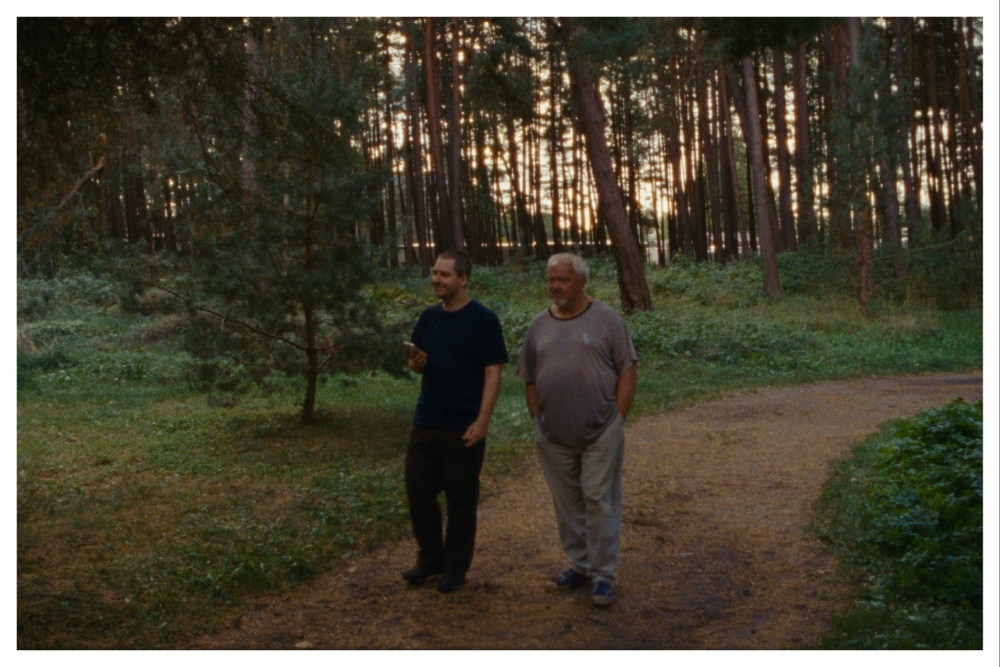TALLINN, Estonia Has Estonia’s Tallinn Film Festival ever had it so good? Since Festival Director Tiina Lokk launched the event in 1997, it has emerged as one of the fastest-growing film events in Northern Europe, recognized by its receipt of an A-list general category status, shared with the likes of Cannes, Berlin and Venice, from 2014. The festival held strong in 2025, buoyed by an powerful Catalan Focus, new talent discoveries and a vibrant industry arm. One question now is if there are headwinds ahead for the enterprising local Baltic national film industries. Following 6 takeaways from this year’s fest edition: Hollywood Glamour at Discovery Campus A proof of Tallinn’s ace reputation as a training ground for the next gen of film professionals from around the world, its star educational program Discovery Campus attracted this year world class mentors from Hollywood costume designer Debra McGuire (“Friends,” “The Morning Show”) to hairstylist Nina Paskowitz (“Pirates of the Caribbean: The Curse of the Black Pearl,” “Mob City”), Emmy-winning composer Miriam Cutler (“Love, Gilda,” “RBG”) and renowned Austrian helmer Jessica Hausner. Over 40 rising talents split into the Script Pool, Black Night Stars, Music Meets Film, Black Room and Frame within a Frame workshops, got a chance to be inspired and trained over four days. “All we want [as costume designers] is to be in actors, directors’ heads, see what they see, therefore communication is key; if we get a bible early on [from producers], we’ll know what to do, where to go, and if there are issues, you’ll need to find solutions together,” were some of McGuire’s tips. Meanwhile Hausner and her husband composer Markus Binder shared their creative collaboration, from concept to final mix, using “Club Zero” as case study. “We want our rising talents to learn from the mistakes our mentors make, so that they don’t make them themselves,” said head of Discovery Campus Trinn Tramberg. Estonia Braces for New Studios, More Coin for Foreign Shoots The tech-oriented country where Skype was born is turning its dream to lure other “Tenet” tentpoles into reality. The state-of-the-art Ida Viru studios in North-Eastern Estonia, plugged as the largest studio complex in Northern Europe, will open its doors in July 2026. At the panel Step into the Wild Wild East-Where Creativity Meets Courage, Teet Kuusmik, head of the studios and the Ida-Viru Investment Agency, said the €16 million ($18. 6 million) complex is “a unique concept” as a new film eco-system, combining studio infrastructure, local production expertise, a multimedia accelerator and next gen film tech solutions for producers who can tap into the country’s regional (40%) and national (30%) cash rebates. One of the most recent international pics backed by Estonia’s attractive cash rebates, the Finnish-U. S. actioner “Sisu-Road to Revenge”(opening Nov. 21 in the U. S. At another panel, First AD Hanna Hedengren, Estonian line producer Johanna Trass (Allfilm), and film commissioner Nele Paves explained how the production used 105 local crew over 44 intense shooting days, on top of complex SFX. Other good news for foreign shoots: next year Film Estonia’s annual budget of €6 million ($6. 9 million) will be upped to €10 million ($11. 5 million). Catalonia: Punching Far Above Its Weight Catalonia won four awards at Friday night’s prize ceremony, including the biggest one on offer the Tallinn Black Nights Festival’s Grand Prix for Júlia de Pax Solvas’ main competition entry “The Good Daughter.” A film which announces another potentially major voice on the Catalan film scene who already co-wrote drama series “Querer” which won this year the top prize at Series Mania, Europe’s biggest TV fest “The Good Daughter” (“La Buena Hija”) sums up much of what the world has found so exciting about much Catalan film in the last decade: a near new female writer-director and a film grounded in place and a social and psychological realism which talks, however, of universal issues. Lead Kiara Arancibia’s empathy-inducing performance won her best actress. The film also took Tallinn’s coveted Audience Award. Lead produced by a budding Barcelona production house, Astra Pictures, and receiving support down the whole of chain of value from the Catalan government, “The Good Daughter” is also made with Avalon in Madrid and Krater Films in Belgium as Catalonia emerges as a pan-regional and international co-production force in Europe and Latin America. Another Catalan title, Carlos Solano’s “Leo & Lou,” scored Tallinn’s Children’s Jury Best Film Award: There is a wider range of talent in Catalonia. Survival Tips for Producers As underscored by Tallinn Industry Head Marge Liikse, one of the overarching themes of Industry@Tallinn & Baltic Event (I@T&BE) was how to finance stories amid rising costs and shrinking public funds. “We’ve looked at how to mitigate this by cutting corners, notably through the clever use of AI, cash rebates, post-production through an ApostLab presentation, new tech solutions offered by the IDA Hub Film and Multimedia Innovation Centre, as well as private investment,” she said. At the panel Private Financing in Film: Between Promise and Illusion, venture capital funders Jesús Martínez (Moby Dick, Spain), Alexandra Lebret (Together Fund, France), Patrick Fischer (Creativity Capital, U. K.) and Rain Rannu (Tallifornia Film Fund, Estonia) shared some tip with producers: *Attract U. S. creative partners and convert A-list-driven content into Euro-U. S. co-pros to tap into the plethora of local tax incentives, soft financing, talented and cheaper workforce. “It’s a good time to bring U. S. films into Europe,” said Lebret, whose €50 million ($57. 5 million) fund invests in indie producers: “They are the talent,” she said. “We’ve converted two U. S. movies with big stars into Spanish co-productions,” noted Martínez, specialized in A-list talent-driven commercial fare. *Protect your asset which is your IPs; this is what we bet on,” said both Martinez whose VC fund invests directly in IP, as well as Fischer. *Share the rights and build strong alliances with co-production partners, offered Lebret. *Consider setting up a vertical structure and be innovative in business models, advised Fischer. *Stand on multiple content legs, whatever the genre or format, including vertical narratives, to diversify revenue streams, said Lebret, while Fischer advised to also look into the creator economy. Baltic Film Boom Threatened by Cuts in Culture At PÖFF, Estonia confirmed its strength particularly in documentary filmmaking (“Edge of the Night,” “My Family and Other Clowns”) and daring new voices such as Eeva Mägi with her Mo movement, Estonian answer to Dogma 95. Lithuanian dominated the awards list, with new wins for “The Visitor,” “Renovation,” “China Sea” and “Holy Destructors” after their successful world premieres in Karlovy Vary (for the two first films), San Sebastián, and IDFA respectively. However, war in Ukraine affecting budgets for culture across Europe, is having potentially dramatic effects on the small Baltic nations. While the Lithuanian Film Institute is still waiting for its 2026 budget to go through parliament, the Estonian Film Institute’s 4% cuts in its core running costs will “directly affects our capacity to make Estonian film visible around the world,” warned the EFI’s CEO Edith Sepp. The institute honcho also lamented the freeze to local films staying at €7 million ($8. 1 million) to $8 million ($9. 2 million), while cash rebates for foreign shoots will increase from €6 million ($6. 9 million) to €10 million ($11. 5 million) “This is a historic change,” she said. “Estonia has always taken pride in keeping national authors in the priority position, but not anymore. This is truly sad because it places foreign productions above our own cultural survival. We have reached a point where the economy is allowed to come before our culture, and that is a truly dangerous choice to make for any small nation,” she stated. *French-Nepalese doc “18 Hopes to Paradise” by João Nuno Pinto snapped up by Alpha Violet *Norway’s “No Comment” by Petter Næss boarded by TrustNordisk *Spain’s “Under Your Feet” by Cristian Bernard picked up by FilmSharks *Denmark’s “Pretty Young Love” sold by LevelK to Germany (Splendid Film), Encripta (Latin America), South Korea (Husky Films) *Lithuania’s “Hunger Breakfast Strike” by Karolis Kaupinis boarded by Alief. *Commenting on Tallinn, Tine Klint, head of LevelK who hadn’t attended PÖFF in a while said “in the future, I will prioritise this event because of the packed industry program and networking possibilities across areas. We always submit films because it is a festival that can help with additional visibility and it’s a great festival where the filmmaker can experience a premiere with a fantastic audience.” Nikolai Korsgaard of TrustNordisk who repped “No Comment” and “My First Love” in the Official and First Films competitions respectively, said both titles were already benefitting from their festival buzz. But due to the tough market, he came home empty handed. “2025 has been a challenging year like no other, so we are more cautious with selecting the exact right projects that we can sell and believe in,” he said. John Hopewell contributed to this article.
https://variety.com/2025/film/global/tallinn-black-nights-hollywood-glamour-studios-in-estonia-1236589175/
Tallinn Black Nights: 6 Takeaways From Hollywood Glamour to New Studios in Estonia, Fest Deals, Catalonia and a Producer’s Guide to Surviving Headwinds


